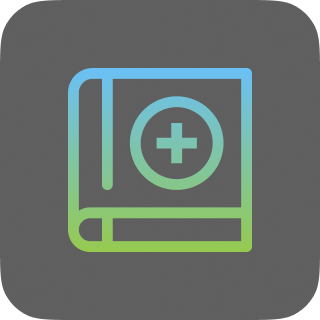Is this your child’s symptom?
- The sound made when the cough reflex clears the airway of irritants
- Most coughs are part of a cold
- A coughing fit or spell is over 5 minutes of nonstop coughing
Causes of Cough
- Common Cold. Most coughs are part of a cold that includes the lower airway. The medical name is viral bronchitis. The bronchi are the lower part of the airway that go to the lungs. Bronchitis in children is always caused by a virus. This includes cold viruses, influenza and croup. Bacteria do not cause bronchitis in healthy children.
- Air Pollution Cough. Fumes of any kind can irritate the airway and cause a cough. Tobacco smoke is the most common example. Others are auto exhaust, smog and paint fumes.
- Serious Causes. Pneumonia, bronchiolitis, whooping cough and airway foreign object
Trouble Breathing: How to Tell
Trouble breathing is a reason to see a doctor right away. Respiratory distress is the medical name for trouble breathing. Here are symptoms to worry about:
- Struggling for each breath or shortness of breath
- Tight breathing so that your child can barely cry
- Ribs are pulling in with each breath (called retractions)
- Breathing has become noisy (such as wheezes)
- Breathing is much faster than normal
- Lips or face turn a blue color
When to Call Us for Cough (0-12 Months)
Call 911 Now
Call Doctor or Seek Care Now
| Contact Doctor Within 24 Hours
Contact Doctor During Office Hours
| Self Care at Home
|
Care Advice for a Cough
- What You Should Know About Coughs:
- Most coughs are a normal part of a cold.
- Coughing helps protect the lungs from pneumonia.
- A cough can be a good thing. We don’t want to fully turn off your child’s ability to cough.
- Here is some care advice that should help.
- Homemade Cough Medicine:
- Goal: Decrease the irritation or tickle in the throat that causes a dry cough.
- Age 6 months to 1 year: Give warm clear fluids to treat the cough. Examples are apple juice and lemonade. Amount: Use a dose of 1-2 teaspoons (5-10 mL). Give 4 times per day when coughing.
- Caution: Do not use honey until 1 year old.
- Drugstore Medicines for Cough:
- Cough Medicines. Don’t give any drugstore cold or cough medicines to young children. They are not approved by the FDA under 6 years. Reasons: not safe and can cause serious side effects. Also, they are not helpful. Reason: They can’t remove the tickle in the throat. They also can’t remove dried mucus from the nose. Nasal saline works best.
- No Antibiotics. Antibiotics are not helpful for coughs. Antibiotics may be used if your child gets an ear or sinus infection.
- Coughing Fits or Spells – Warm Mist and Fluids:
- Breathe warm mist, such as with shower running in a closed bathroom.
- Give warm clear fluids to drink. Examples are apple juice and lemonade.
- Age less than 6 months. Only give breast milk or formula.
- Age 6 – 12 months of age. Give 1-2 teaspoons (5-10 mL) each time. Limit to 4 times per day.
- Reason: Both relax the airway and loosen up any phlegm.
- Vomiting from Hard Coughing:
- For vomiting that occurs with hard coughing, give smaller amounts per feeding.
- Also, feed more often.
- Reason: Vomiting from coughing is more common with a full stomach.
- Humidifier:
- If the air in your home is dry, use a humidifier. Reason: Dry air makes coughs worse.
- Fever Medicine:
- For fevers above 102° F (39° C), give an acetaminophen product (such as Tylenol).
- Another choice is an ibuprofen product (such as Advil). Caution: avoid ibuprofen until 6 months or older.
- Note: Fevers less than 102° F (39° C) are important for fighting infections.
- For all fevers: Keep your child well hydrated.
- Avoid Tobacco Smoke:
- Tobacco smoke makes coughs much worse.
- Return to Child Care:
- Your child can go back to child care after the fever is gone.
- For practical purposes, the spread of coughs and colds cannot be prevented.
- What to Expect:
- Viral coughs last for 2 to 3 weeks.
- Call Your Doctor If:
- Trouble breathing occurs
- Wheezing occurs
- Cough lasts more than 3 weeks
- You think your child needs to be seen
- Your child becomes worse
And remember, contact your doctor if your child develops any of the ‘Call Your Doctor’ symptoms.
Disclaimer: this health information is for educational purposes only. You, the reader, assume full responsibility for how you choose to use it.
Copyright 2000-2023 Schmitt Pediatric Guidelines LLC.









